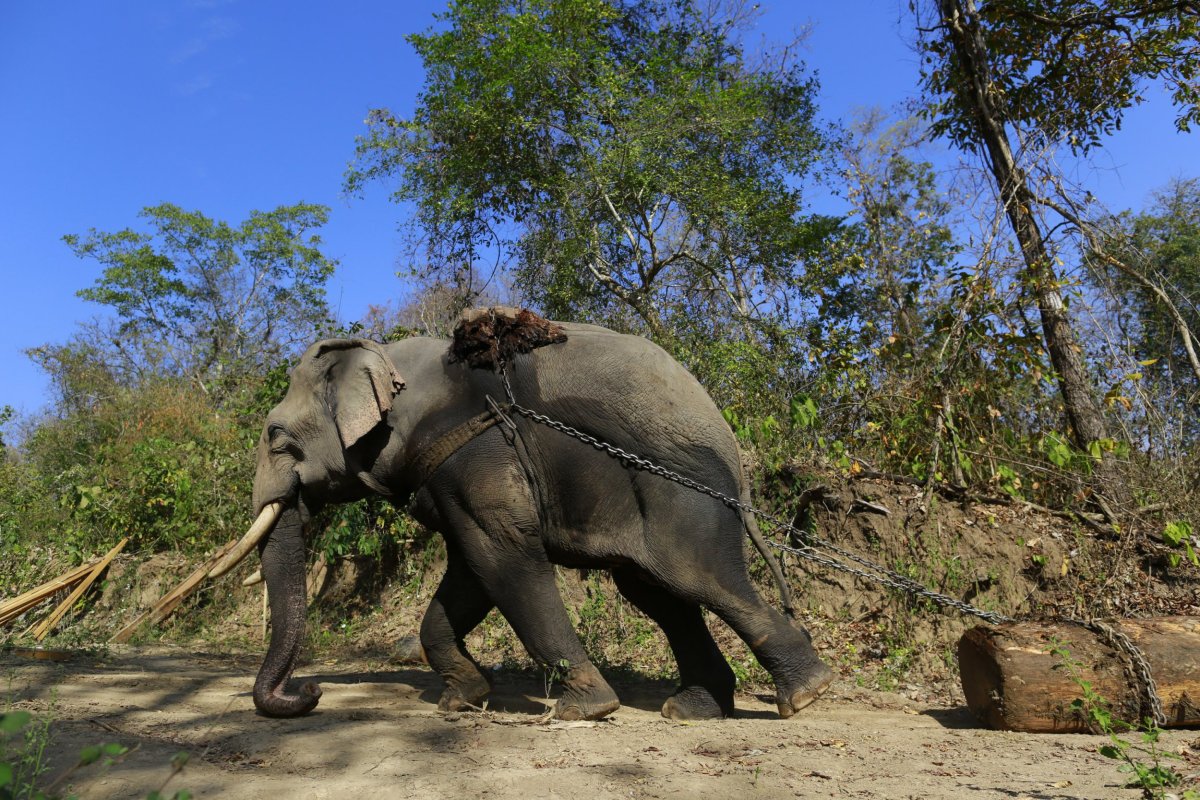Elephants captured from the wild will die sooner than those born in captivity, a new study has found.
Researchers from the University of Turku in Finland analyzed the lives of captive Asian elephants to determine how their living situation affects their long-term health. Published in Nature Communications on Tuesday, the article explains how the change captive elephants experience can negatively affect the elephants. The animals experience long-term stress from their capture and changes in their social environments, potentially leading to shorter lives. The elephants also reproduce poorly in captivity. Elephants captured from the wild lived three to seven fewer years than those born in captivity. While not much research has been done on how long Asian elephants live, they likely can survive until their mid-50s.
"Our analysis reveals that wild-captured elephants had lower survival chances than captive-born elephants regardless of how they'd been captured, whether by stockade of whole groups, lassoing single elephants, or immobilization by sedation," Mirkka Lahdenpera, lead author of the study, said in a press release.
"This means that all these methods had an equally negative effect on the elephant's subsequent life," Lahdenpera added. "We also found that older elephants suffered the most from capture; they had increased mortality compared to elephants caught at younger ages."

The scientists studied timber elephants in Myanmar. Myanmar has the largest elephant-in-captivity population in the world—more than 5,000 elephants—according to the Myanmar Timber Elephant Project. Most in captivity live in government-owned timber camps, where the trained elephants help extract wood in mountainous areas that vehicles struggle to travel through. The animals live in the forest at night, where they find their own food. Half of the elephants used are born in captivity, but in order to keep up with the demand, many are captured from the wild. At this rate, wild elephants in Myanmar are expected to go extinct by the end of the century.
Asian elephants are endangered, with fewer than 50,000 alive today, and a third of all Asian elephants live in captivity. According to the Smithsonian's National Zoo and Conservation Biology Institute, the elephants, which can be around 6.5 feet to 11.5 feet tall, weigh between 6,000 and 11,000 pounds. They're intelligent animals, and their brains can weigh between 9 and 13 pounds.
Uncommon Knowledge
Newsweek is committed to challenging conventional wisdom and finding connections in the search for common ground.
Newsweek is committed to challenging conventional wisdom and finding connections in the search for common ground.
About the writer
To read how Newsweek uses AI as a newsroom tool, Click here.








